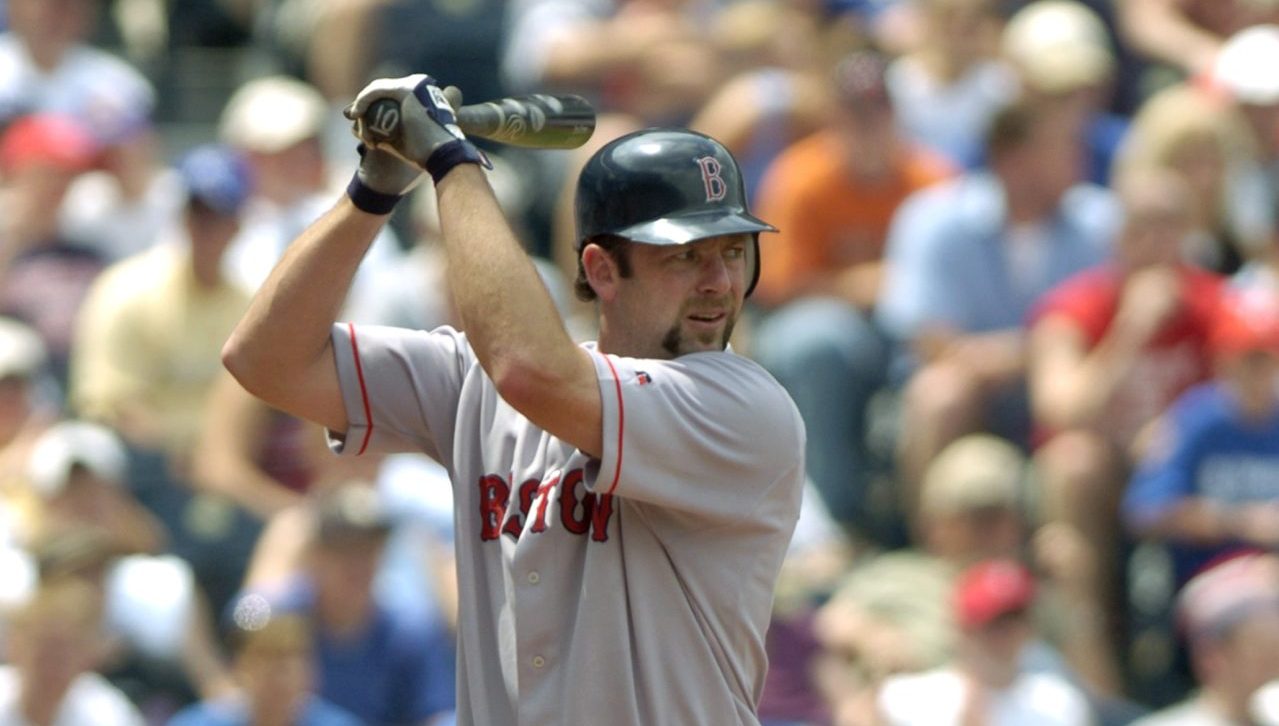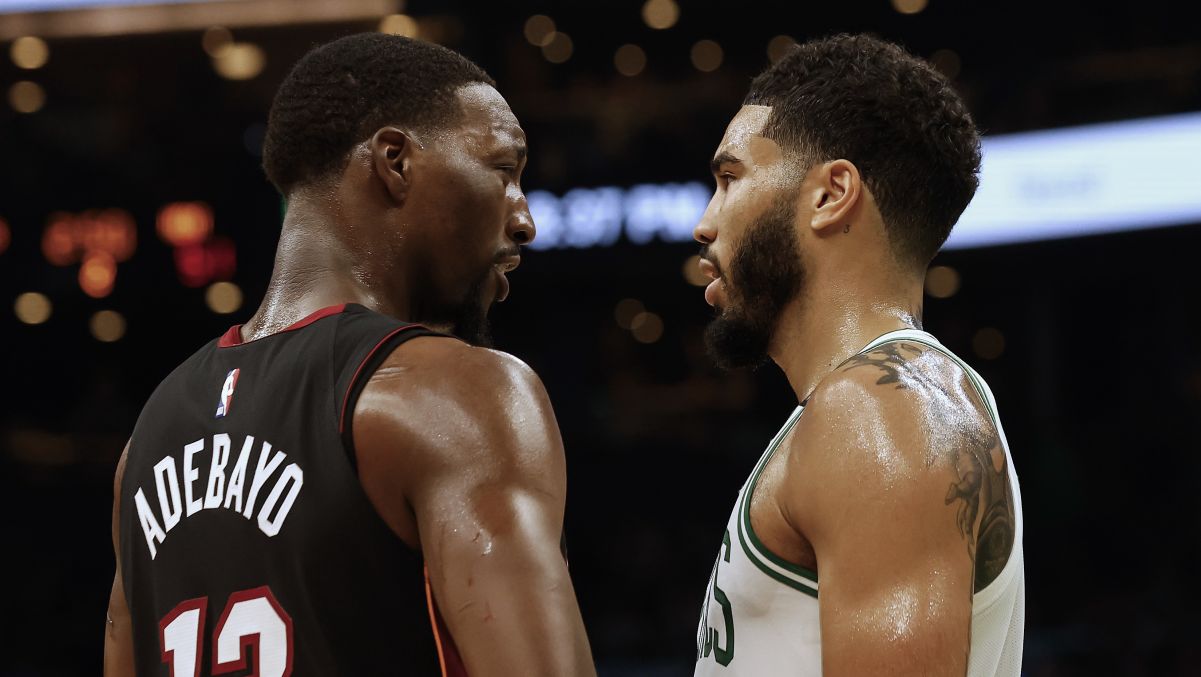Ranking the 10 worst umpire calls in MLB postseason history originally appeared on NBC Sports Bayarea
The “human element” in baseball leads to human error.
Such has been the case since the Cincinnati Red Stockings became the first professional baseball team back in 1869. Umpires have been in charge of officiating games since the sport’s origin, and by keeping the practice in place, the modern game still contains an old-fashioned element.
Fans and analysts across the sport have been clamoring for a technological takeover in MLB, and Thursday’s winner-take-all NLDS contest between the San Francisco Giants and Los Angeles Dodgers provided further evidence to back their case.
Get Boston local news, weather forecasts, lifestyle and entertainment stories to your inbox. Sign up for NBC Boston’s newsletters.
A thrilling Game 5 was capped off in controversial fashion as Giants first baseman Wilmer Flores appeared to check his swing on a low breaking ball from Dodgers starter-turned-temporary-closer Max Scherzer. First base umpire Gabe Morales erroneously ruled that Flores went around, ending the game and sending the Dodgers to the NLCS.
Would the Giants have won the game and series if Morales said Flores held up? Not necessarily. But would the correct call have been made if someone was making the ruling from league headquarters, the umpire crew had the benefit of replay in that situation or if robot umpires were in place? Absolutely.
While Flores’ “swing” was a botched call that capped off an epic showdown between two successful rivals, there have been other infamous playoff moments altered by even worse calls.
Sports
News, videos, and rumors on the Boston Celtics, New England Patriots, Boston Red Sox, and Boston Bruins, powered by NBC Sports Boston.
Here are some of the most egregious rulings in MLB postseason history:
10. 2012 NL Wild Card Game, St. Louis Cardinals vs. Atlanta Braves
The infield fly rule is intended to help the offense avoid a double play. During the 2012 NL Wild Card Game, the rule was implemented in costly -- and incorrect -- fashion.
Braves shortstop Andrelton Simmons lifted a fly ball to left field in the top of the eighth inning with one out and runners on first and second. The ball wound up dropping between shortstop Pete Kozma and left fielder Matt Holliday, so the Braves would have had the bases loaded and the go-ahead run coming to the plate. Instead, Simmons was ruled out as left field umpire Sam Holbrook called the infield fly rule mere milliseconds before the ball hit the ground.
The play was not called in accordance with the rule’s namesake. While the infield fly rule is meant to benefit the runners on short popups, the ball landed well over 50 feet past the infield dirt.
Jason Motte struck out Michael Bourne with two outs and the bases loaded to end the inning as the Cardinals advanced to the NLDS with a 6-3 win.
9. 1970 World Series, Game 1, Baltimore Orioles vs. Cincinnati Reds
Ken Burkhart took the concept of “umpires getting in the way” to a new level in the opener for the 1970 World Series.
The home plate ump thought Orioles catcher Elrod Hendricks would throw to first after collecting a measly chopper in front of the batter’s box. The action ended up happening at the plate, where Burkhart was standing right in the middle of Bernie Carbo’s path.
Carbo barreled into Burkhart and was called out by the man he just ran over. Not only was Carbo upset because his running lane was blocked, but Hendricks applied the tag with his glove when the ball was actually in his throwing hand.
Cincinnati manager Sparky Anderson argued with Burkhart, but to no avail. The game remained tied at 3-3 and the Orioles went on to win both Game 1 and the World Series.
8. 2007 NL Wild Card tiebreaker, San Diego Padres vs. Colorado Rockies
Michael Barrett did such a great job blocking the plate on the final play of the 2007 NL Wild Card tiebreaker that he obstructed Matt Holliday and Tim McClelland.
A truly wild contest between the Padres and Rockies reached the bottom of the 13th inning. With the game knotted at 8-8 and the winning run 90 feet away, Jamey Carroll hit a ball in the air to right field. Outfielder Brian Giles caught it and launched a throw home as Holliday tried to tag up from third. Giles’ throw reached Barrett before Holliday got to the plate, but Barrett’s foot was planted between Holliday and the plate. Barrett picked up the ball after it bounced out of his glove and applied the tag to Holliday, but McClelland ruled Holliday safe to give the Rockies a walk-off win.
McClelland was lined up on the first base side of home plate, preventing him from seeing that Barrett kept Holliday from scoring. However, the umpire was able to see the ball rolling away from Barrett, indicating that the catcher had not made the initial tag.
The call put an end to the Padres’ season, while the Rockies went on to make their first ever World Series appearance.
7. 1991 World Series, Game 2, Atlanta Braves vs. Minnesota Twins
Kent Hrbek got away with a wrestling move in Game 2 of the 1991 Fall Classic.
Roy Gant got caught between the bases after lining a single to left field. When he retreated back to first, Hrbek grabbed Gant’s leg and pulled him off the bag with the ball in his glove. First base umpire Drew Coble shook his head at Gant’s protest after the out was called, and the Twins wound up winning 3-2.
The play happened in the top of the third inning, so there was a lot of baseball to be played both in the game and the series. The matchup between the Braves and Twins went the distance and is remembered as one of the greatest MLB postseason series ever, making every play -- and missed call -- count.
6. 1975 World Series, Game 3, Boston Red Sox vs. Cincinnati Reds
Why didn’t Ed Armbrister keep running to first?
That is a question home plate umpire Larry Barnett did not dig deep enough into during Game 5 of the 1975 World Series.
Armbrister dropped a bunt mere feet in front of home plate in the bottom of the 10th inning with a runner at first and a tied score. Boston catcher Carlton Fisk went to grab the ball and throw to second, but Armbrister was still standing in the way instead of making his way down the first base line. Fisk’s throw airmailed into center field, allowing Cesar Geronimo to reach third. Red Sox manager Darrell Johnson confronted Barnett about the no-call, but the umpire let the play stand.
Joe Morgan later drove in Geronimo with a walk-off single that gave the Reds a 2-1 series lead on their way to the 1975 title. The Red Sox, a franchise filled with almost a full century of playoff nightmares, also were on the wrong end of the “Phantom Tag” in the 1999 ALCS.
5. 1996 ALCS, Game 1, Baltimore Orioles vs. New York Yankees
Derek Jeter hit a long fly ball to right field that landed in Jeffrey Maier’s glove. It should have been called an out, but it was instead ruled a home run.
Huh?
O’s outfielder Tony Tarasco was camped under the ball at the right field wall, but the 12-year-old Maier snagged the souvenir from the bleachers. While fan interference was clearly in play, umpire Rich Garcia was undeterred by a fuming Tarasco as Jeter rounded the bases with a game-tying home run.
Bernie Williams hit a walk-off home run in the bottom of the 11th, but Maier and Garcia were the true heroes for the Bronx Bombers that night.
4. 1997 NLCS, Game 5, Atlanta Braves vs. Florida Marlins
This is where horrible almost turns into comical.
Livan Hernandez finished his career with just four games of double-digit strikeouts and a regular season career high of 11. So how did he ring up 15 Braves during Game 5 of the 1997 NLCS?
Leave that to home plate umpire Eric Gregg.
With the series knotted at 2-2, Hernandez got the Game 5 nod for the Marlins and had the benefit of Gregg’s all-caps WIDE strike zone. Numerous strike three calls were given for pitches that were nearly a foot off the plate, punctuated by a game-ending K of Fred McGriff on a breaking ball that could have drilled a righty batter. Based on Hernandez’s celebration, he agreed with Gregg’s zone.
The Marlins won the game, the NLCS and the 1997 World Series.
3. 1969 World Series, Game 4, Baltimore Orioles vs. New York Mets
J.C. Martin dropped a picture-perfect sacrifice bunt in the bottom of the 10th inning during Game 4 of the 1969 World Series. But he wanted more.
With no outs and runners on first and second, Martin placed a bunt on the right side of the infield. O’s pitcher Pete Richert grabbed the ball and threw to first, but the ball bounced off Martin before trickling across the infield. Rod Gaspar rounded third and crossed home plate to give the Mets a walk-off win and 3-1 series lead.
While Martin got the job done with his bunt, he undoubtedly should have been called out for runner interference. Instead of running straight up the line, he crossed into fair territory for the final stretch of his dash to first base, getting in the way of Gaspar’s throw. Home plate umpire Shag Crawford and first base umpire Lou DiMuro did not make a call, allowing the play to stand.
2. 1978 World Series, Game 4, Los Angeles Dodgers vs. New York Yankees
The Dodgers were on the verge of escaping a sixth-inning jam before Reggie Jackson literally got in the way.
With runners on first and second with one out, Dodgers shortstop Lou Piniella knocked down a line drive, stepped on the bag at second and threw to first. Jackson, the runner at first who was already out on the play since Piniella got the force out at second, stuck out his hip and deflected Piniella’s throw. The ball bounced up the first base line and Thurman Munson was able to score from second.
Despite the apparent intent from Jackson to obstruct the throw, umpire Frank Pulli allowed the play to stand. The Yankees ended the game on a 4-0 run and walked it off in the 10th inning, evening up the series en route to another World Series title.
1. 1985 World Series, Game 6, St. Louis Cardinals vs. Kansas City Royals
When a play earns the nickname “The ___,” it means it is the best or worst of something. In the case of “The Call,” it’s the latter.
Up 3-2 in the series and 1-0 in the bottom of the ninth, the Cardinals were on the verge of a World Series triumph over their intrastate rivals. Jorge Orta poked a bouncing ground ball to Cardinals first baseman Jack Clark, who tossed the ball to pitcher Todd Worrell. The throw beat Orta to the bag by half a step, but first base umpire Don Denkinger called Orta safe.
Worrell struggled following the call, getting just one out on a sacrifice bunt before allowing a two-run, walk-off single to Dane Iorg. The Royals dominated Game 7 by a score of 11-0 to win the title, but it’s impossible to know which Missouri team would have come out on top if Denkinger made the correct call.



